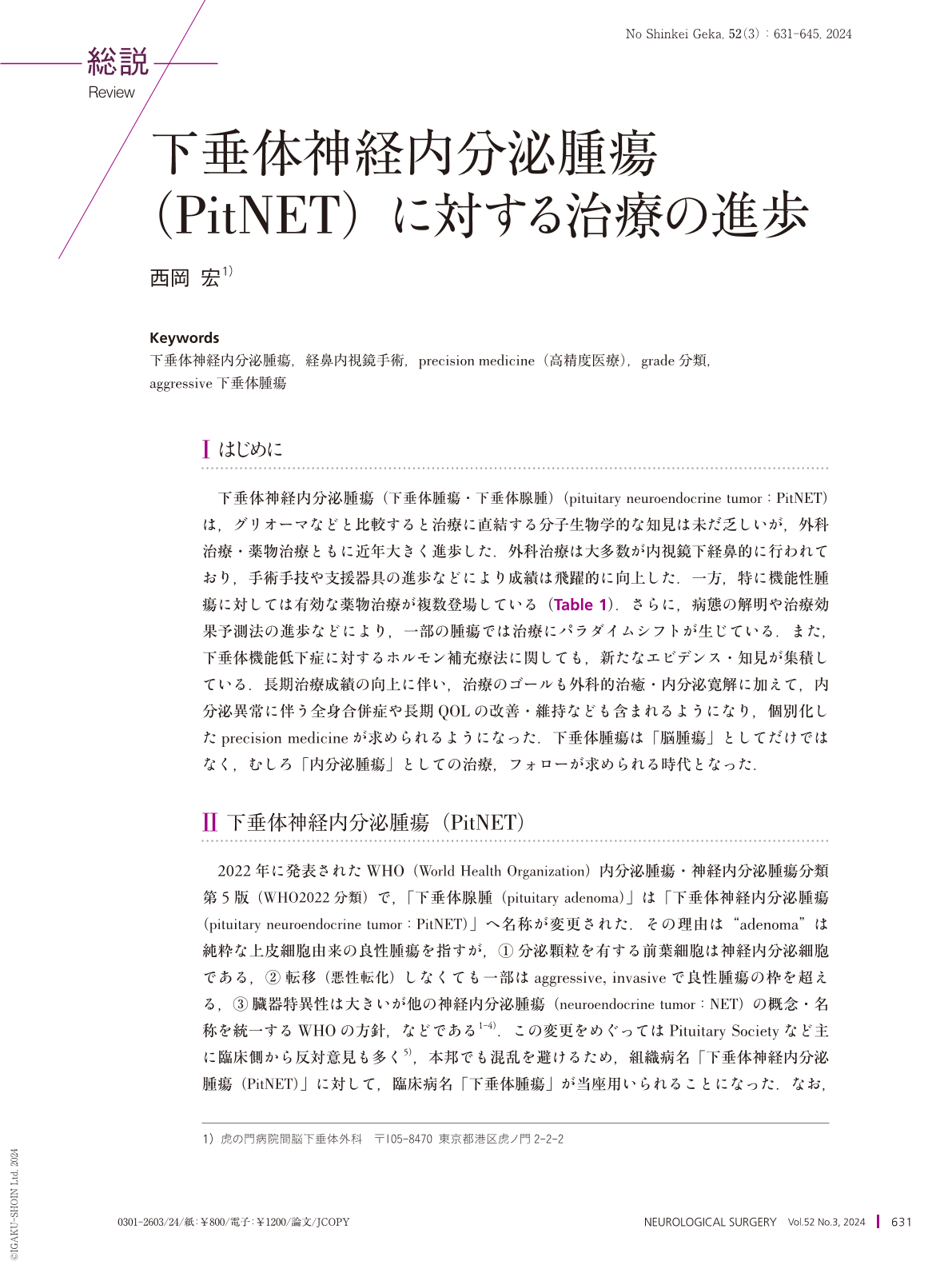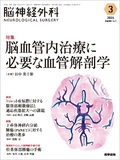Japanese
English
- 有料閲覧
- Abstract 文献概要
- 1ページ目 Look Inside
- 参考文献 Reference
Ⅰ はじめに
下垂体神経内分泌腫瘍(下垂体腫瘍・下垂体腺腫)(pituitary neuroendocrine tumor:PitNET)は,グリオーマなどと比較すると治療に直結する分子生物学的な知見は未だ乏しいが,外科治療・薬物治療ともに近年大きく進歩した.外科治療は大多数が内視鏡下経鼻的に行われており,手術手技や支援器具の進歩などにより成績は飛躍的に向上した.一方,特に機能性腫瘍に対しては有効な薬物治療が複数登場している(Table 1).さらに,病態の解明や治療効果予測法の進歩などにより,一部の腫瘍では治療にパラダイムシフトが生じている.また,下垂体機能低下症に対するホルモン補充療法に関しても,新たなエビデンス・知見が集積している.長期治療成績の向上に伴い,治療のゴールも外科的治癒・内分泌寛解に加えて,内分泌異常に伴う全身合併症や長期QOLの改善・維持なども含まれるようになり,個別化したprecision medicineが求められるようになった.下垂体腫瘍は「脳腫瘍」としてだけではなく,むしろ「内分泌腫瘍」としての治療,フォローが求められる時代となった.
In the World Health Organization 2022 classification, a nomenclature change from pituitary adenoma to pituitary neuroendocrine tumor(PitNET)was introduced to indicate rare but potentially malignant behavior. No grading system is available for PitNETs; therefore, the establishment of a system that corresponds to their clinical behavior is an urgent issue. Presently, this change has no direct influence on therapeutic strategies.
Recently, the therapeutic outcomes of most patients with PitNETs have significantly improved owing to marked advancements in both surgical and medical treatments. The former includes the evolution of endoscopic surgery and technical refinements, whereas the latter includes the introduction of new effective drugs and increased knowledge and experience regarding their use, leading to personalized and/or precision medicine. Consequently, the treatment goals have advanced, encompassing endocrinological remission, successful management of comorbidities, increased health-related quality of life, and a normalized mortality rate.
However, management of some aggressive and metastatic PitNETs remains difficult. Although temozolomide(TMZ)is considered a promising sole therapeutic option, recent reports have shown that TMZ does not provide long-term control in many cases. A multidisciplinary approach is necessary for the reliable prediction and successful management of aggressive tumors.

Copyright © 2024, Igaku-Shoin Ltd. All rights reserved.


